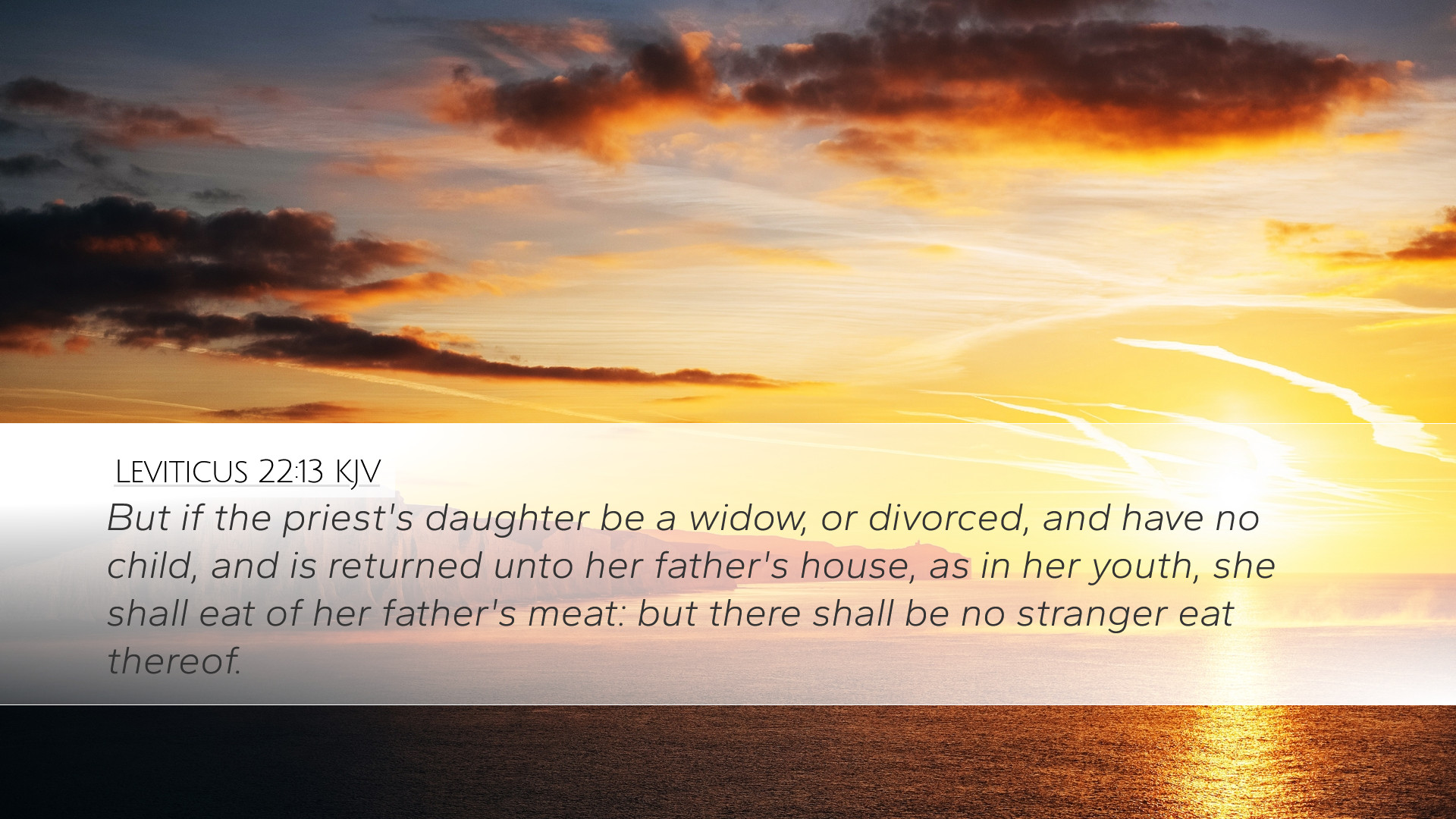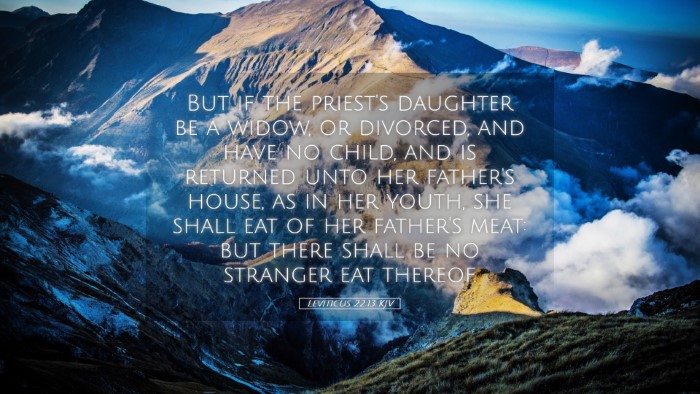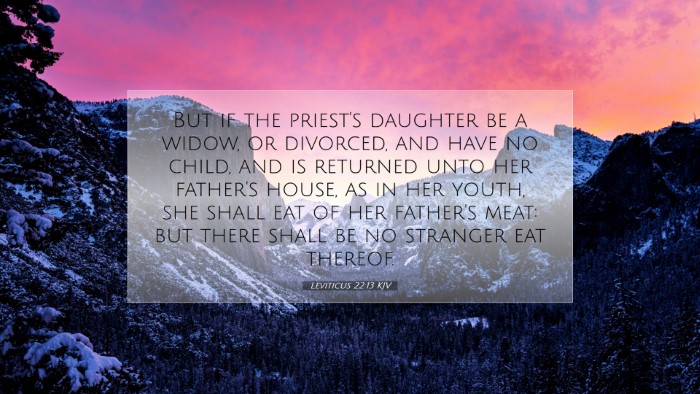Leviticus 22:13 - A Commentary
Verse Text: "But if the priest's daughter is a widow or divorced and has no child, and she returns to her father's house as in her youth, she may eat of her father's food; but no outsider shall eat any of it."
Introduction
The verse from Leviticus 22:13 deals with specific laws regarding the dietary privileges associated with the priestly family in ancient Israel. This commentary synthesizes insights from several public domain commentaries, analyzing the cultural, theological, and practical aspects of the passage.
Contextual Background
This verse is located within the larger context of Leviticus 22, which primarily focuses on the holiness of the priests and the regulations governing their conduct and the sacrificial system. The preceding verses emphasize the importance of maintaining purity among the priests and their families, as they represent God’s holiness to the people of Israel.
Family and Holiness
Matthew Henry notes that the dedicated life of the priest extends beyond personal conduct; it also includes the integrity of familial relationships. The priest's daughter, in this instance, is afforded a measure of grace when faced with widowhood or divorce, illustrating the compassionate nature of God’s laws.
Theological Insights
Leviticus 22:13 reveals significant theological implications regarding God's provision and the status of individuals in Israelite society. This section demonstrates the balance between holiness and mercy.
Grace for the Vulnerable
Albert Barnes points out that the widow or divorced woman, who traditionally might be viewed as disadvantaged, is granted a return to her father's house and allowed to partake of the priestly sustenance. This provision highlights the redemptive character of God's law, allowing those who have suffered loss to still partake of familial blessings.
Covenantal Community
Adam Clarke elaborates on the communal aspect of God’s covenant with Israel. The priest’s daughter symbolizes the broader community dynamics wherein individuals have distinct roles and privileges based on their relationship with the covenant community. Her return to her father’s house reinstates her dignity and place within Israel’s holy order, emphasizing that all members bear a certain responsibility and privilege within the covenant.
Exegesis and Implications
Examining this verse through exegetical lenses reveals several layers of meaning. It addresses issues of societal status, family relationships, and covenant responsibilities.
Examination of "Outsiders"
The restriction against outsiders consuming the priest's food (referring to sacred offerings that the priests could partake of) accentuates the exclusive privileges enjoyed by the priestly class. Matthew Henry emphasizes that this demarcation signifies a revered boundary, and while grace is extended to the priest’s daughter, others outside this covenant community are not afforded the same privilege.
The Symbol of Return
This text also represents the theological motif of return. The act of coming back to the father’s house signifies restoration, both physically and spiritually. Clarke asserts that it underscores the nature of repentance and restoration found in the larger Biblical narrative: believers returning to their Father after experiencing worldly challenges.
Practical Applications
For pastors and theologians today, Leviticus 22:13 implores us to reflect on our communal engagements and the way we treat the vulnerable in our congregations. Insights from this passage can guide leaders in creating inclusive environments where all, particularly those marginalized by circumstances such as divorce or loss, feel welcomed and valued.
Encouragement for the Marginalized
This passage serves as a reminder to extend grace towards individuals who may find themselves on the periphery of community life. The church must actively ensure that all individuals, akin to the priest's daughter, are invited to partake in the blessings and provisions of God’s community.
Fostering a Culture of Restoration
Understanding the significance of return as illustrated in this verse encourages congregations to promote restoration and healing. Pastors are urged to develop ministries focused on reconciliation and support systems that help individuals navigate their journeys back to a state of belonging and acceptance.
Conclusion
Leviticus 22:13 highlights the intertwining of divine laws with human compassion. The inclusivity extended towards the priest's daughter serves as a powerful illustration of grace within the framework of holiness. This verse calls for reflection on our understanding of community, privilege, and the ways we ensure that no one is left behind in our spiritual journeys.


